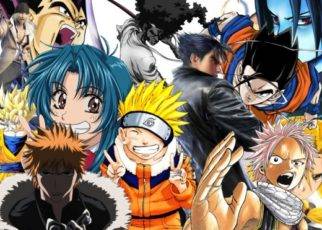The Early History Of Anime
What is Japanimation? What is Japanimation’s cultural influence and significance to this day? Japanimation is Japanese Animation, also known as Anime. During the early 20th Century the first Anime released in Japan was in 1917 and was a two minute cartoon of a Samurai with his Katana. This first Japanimation was entitled “Namakura-gatana” which translates into “The Blunt Samurai Sword.” It was produced by Junichi Kouchi. The animated cartoons that were released in Japan soon after, dealt with Japanese folklore.
During the next few years the Animation artists experimented with many different animation styles that were in use at that time. An example of this is Paper Silhouette Animation. These Animation artists typically worked from their in-house studios and sold their works to production companies to fund their next projects. In Japan during the 1920s, the film industry was dormant mostly thanks to the limited availability of western looking actors for westernized dramas and films produced solely in Japan. In the 1930s, Japanimation oriental folk story genre switched to a darker more militaristic genre which coincided with the age of Japan’s modern-age Imperialism. The Japanese government used these animations for propaganda.
In 1937, after the release of Disney’s “Snow White and the Seven Dwarfs,” Japanimation evolved even more thanks to the Japanese animators learning new animation techniques. In 1944, the first full-length Japanimation was released. It was entitled “Momotaro’s Divine Sea Warriors.” After World War II and the reconstruction, Japanimation’s popularity in Japan increased while its popularity in other countries was severely marginal. During the 1980s, Japanimation was exported around the world being shown in countries such as the United States of America. America, and various other countries around the world, got to experience a different type of animation style and a radically different type of culture. Japanimation became widely popular throughout the world and is still popular even to this day.
The Cultural Impact Of Anime And It’s Differences To American Cartoons
Japanimation is largely different than regular westernized animation. One reason that it is different is that its genres are numerous while in Americanized cartoons there are only a few types. In Anime there are more than a dozen types of genres to fit everyone’s needs and tastes.
Another reason that Japanimation is largely different is the targeted age audience. While both Anime and American cartoons are geared towards multiple types of people groups, ages, sexes and religions, Anime has a higher popularity with teenagers and adults as opposed to American cartoons. Japanimation that is targeted towards teenagers and adults feature violence, sexual innuendos, and severe language. When Anime was reintroduced to America in the 1980s, and became highly popular in the late 1980s and the 1990s, America was invaded by Japanese culture. In the many different genres in Anime the viewers got to experience the cultural, religious values, and views of everyday life in Japan. In retrospect, Japanimation is highly popularized to this day and is considered one of the greatest art forms as well as a cultural experience to a more ancient and mysterious culture than our own.





